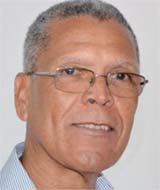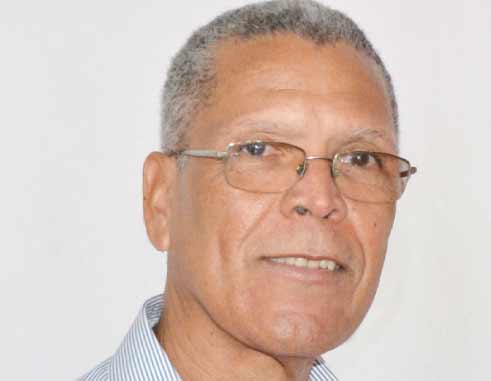
AT the end of August this year, the Ministry of Education announced the upcoming launch of an “Education for Democratic Citizenship” programme. It has not received much attention but having repeated the calls made by the editorial of this newspaper for the teaching of ethics in our schools, we congratulate the Ministry for a step taken in the right direction.
We also congratulate that group of teachers who took it upon themselves to address this issue of values with their young charges.
As we have “grown” into a “modern” society, we have adopted and are constantly encouraged to adopt those expressions of modernity to which we are regularly exposed. For those of us with an eye firmly fixed on the North American star as the ultimate expression of what we should become, we seem to have simultaneously lost sight of the human dignity associated with living a life based on values.
Modernism has also meant that the influence of the Church has declined in our society and while the subject of religion is too divisive for discussion, in the recent past, the Church represented our first line of defense of civility. So it gave us the Ten Commandments, three of which bear repetition now, as they are on everybody’s mind today: “Thou shalt not covet”, “Thou shalt not steal”, and “Thou shalt not kill”. We might also want to note that all of the major religions provide sets of instruction similar to the Ten Commandments, instructing on how a society should conduct itself.
With our focus on North America, while we glorify the separation of Church and State, we ignore the fact that the values by which that society is supposed to function have been captured in laws, laws which are rigidly enforced. So that if you litter, you will be fined; if your dog fouls the sidewalk, you either pick it up or you will be fined; you play loud music in your car or home – same thing: fined.
But the rule of law in North America goes much deeper than this and so today we find that the sitting President of the United States is under investigation for, among other things, obstruction of justice. So that even if it is difficult to prove that a crime had been committed, obstructing the investigation of that possibility will be sufficient to end the President’s new career.
It is not only the President who faces the course of the law because, as it turns out, some of the staff of the Republican National Committee are also under investigation for their possible involvement with the reputed attempt by the Russians to influence the outcome of the U.S. elections. Those staffers are so threatened by the investigation that even though they claim complete innocence, one has used savings for his children’s college education to pay for his legal defense. For him, that defense is absolutely necessary as the alternative is a long time in jail, a sentence which he can expect to begin serving in the very near future if found guilty. In the United States, the rule of law is paramount, and justice is swift.
Here in St. Lucia, while we are rapidly dispensing with moral and ethical standards, we do not have the resources to maintain discipline in our society through the rule of law. So that when crimes are committed, perpetrators rely on a low likelihood that those crimes will be properly investigated, or that they will be caught and punished.
For those whose solution is to pour more money into our police and judiciary, they might want to consider that there is now no more money, so that any additional funding of the police and judiciary means a reduction in funding of areas such as education and health care.
But even in the U.S. where the rule of law is paramount, ethical behaviour is also regulated and so we often witness the public parade of elected officials who have crossed that ethical line and are disciplined for their behaviour.
In the U.K., not only is ethical behaviour by councilors on that country’s county councils regulated, but training in ethics is also provided for those councillors.
Recently, in Canada, we saw a senator choose resignation in the face of expulsion from the Senate following his dalliance with a teenager. No details of this incident were provided but in St. Lucia widespread allegations of unethical behaviour by one of our senators have simply been dismissed as the associated matter is now before our courts.
While the developed countries place a high premium on ethical behaviour, in St. Lucia today suggesting that ethical behaviour should be a hallmark of our public life, is now a cause for embarrassment.
But it is unethical behaviour, and possible criminal conduct, which is at the root of the scandal that the St. Jude Hospital Reconstruction Project represents – not bad design.
In respect of Jounen Kwéyòl, we take a look at culture next week and then return to this.











The commentary states”as we have grown into a modern society”.
— This is unarguably incorrect. St. Lucia is worse off than it was in the 1980’s. It has regressed, and where it has not regressed, it has reminded stagnant. Plain and simple. One needs only to look either quantitatively or qualitatively at areas such as fiscal position, fiscal management, governance/transparency, the agriculture sector, social values, infratructure, and the general level of both safety and security.
— With his assertion, the author seemingly lives in his very own warm and happy bubble that is shielded from reality.
The commentary states: “the Church represented our first line of defense of civility”
— That may have been true hundreds of years agio in the backward and oppressive days of colonialism. It would seem that the author laments those days of colonialism. Perhaps he should speak to children worldwide that have been abused by the Church. The author needs to stop pining for the past, a past in which he wouldn’t be an engineer writing for a media outlet and who would likely instead be serving tea to priests in the rectory.
— Further, times have also changed — the “Church” is not the only large religion, there are several others now in Western society.
— A functional democracy’s first line of defense in a modern society is quite simple — it is called “rule of law” and is accompanied typically by a policy outlining both compliance and enforcement..
The commentary states: “there is now no more money.”
— That is a very lame excuse by the author regarding not bolstering complainace monitoring and enforcement. While there may not be extra money coming in, that is why there is a budgetary planning process — reallocate funds from elsewhere, and trim some of the fat so as to right-size our bureaucracy, or more plainly stated, get rid of the burgeoning numbers of middle management in our public service, impose a pay freeze for three years on the rest, and pump the savings into education and into law enforcement.,
The author seems to be content to sit on the sidelines and play the role of armchair expert rather than getting involved “on the ground” to help advance the dialogue and collaboratively work towards a solution Lack of on the ground engagement is sad. Disappointing. It really is.